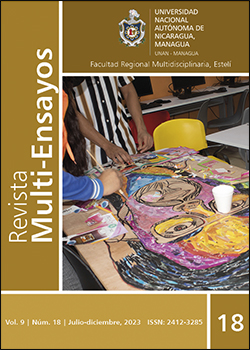Impact, Advantages and Challenges of Bilingualism in Honduras
DOI:
https://doi.org/10.5377/multiensayos.v9i18.16429Keywords:
bilingualism, challenges, job opportunities, English as a second language, brain reorganizationAbstract
This essay discusses bilingualism and its importance, specifically contextualized in the Central American country of Honduras. It begins by defining bilingualism as the ability to fluently use two or more languages, highlighting its relevance in the linguistic, cognitive, and social development of bilingual individuals. This essay argues that speaking only one language can have disadvantages, such as communication limitations, barriers in education, missed job opportunities, cultural isolation, and a limited exposure to different forms of thinking. Additionally, some challenges associated with bilingualism are also mentioned, including possible interference between languages, the need to balance the use of both languages in different contexts, and the additional time required to achieve fluency in both languages. Despite these challenges, it is highlighted that the advantages of bilingualism far outweigh these obstacles.
Downloads
1220
HTML (Español (España)) 477
Published
How to Cite
Issue
Section
License
Copyright (c) 2023 Revista Multi-Ensayos

This work is licensed under a Creative Commons Attribution-NonCommercial-ShareAlike 4.0 International License.

